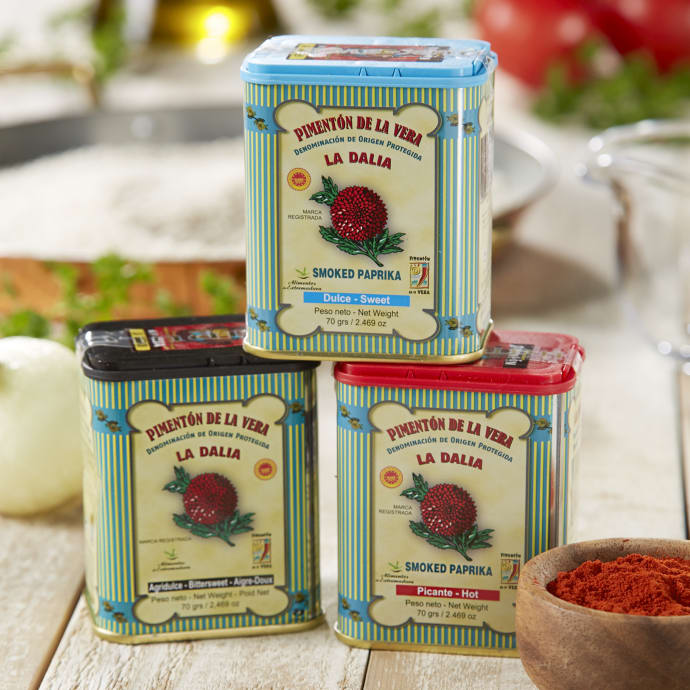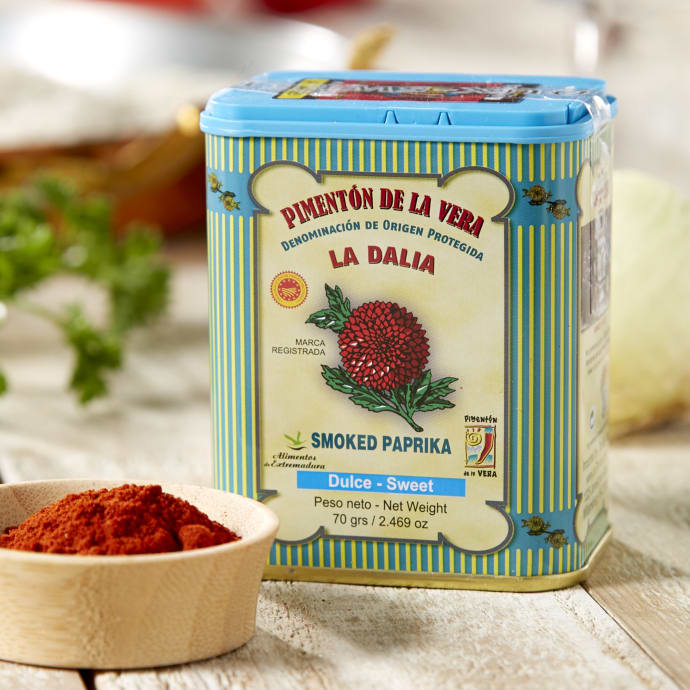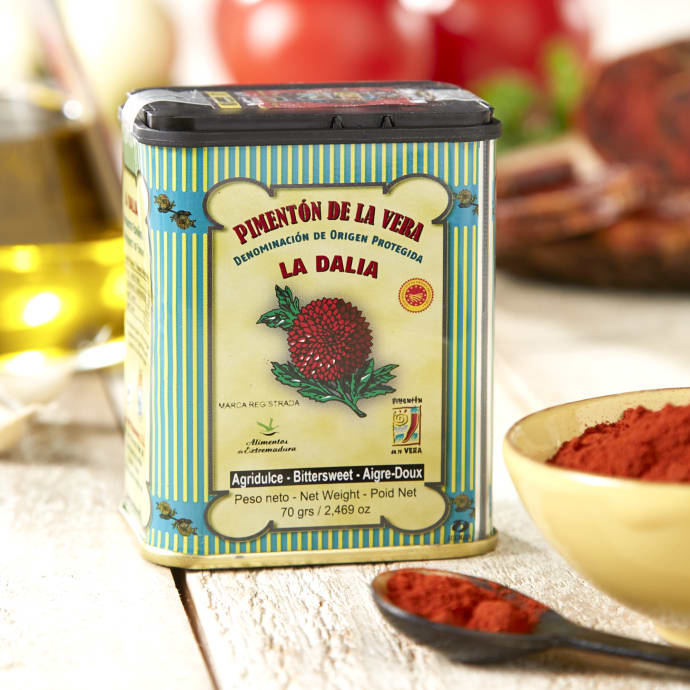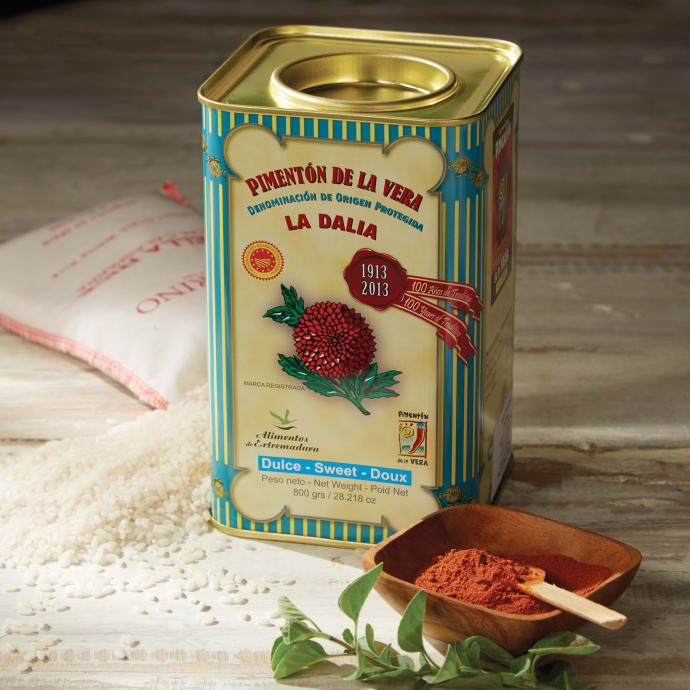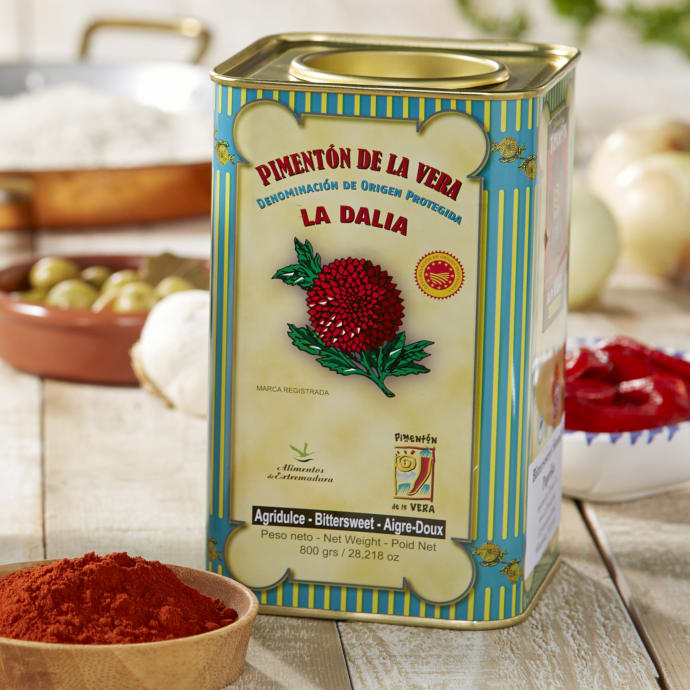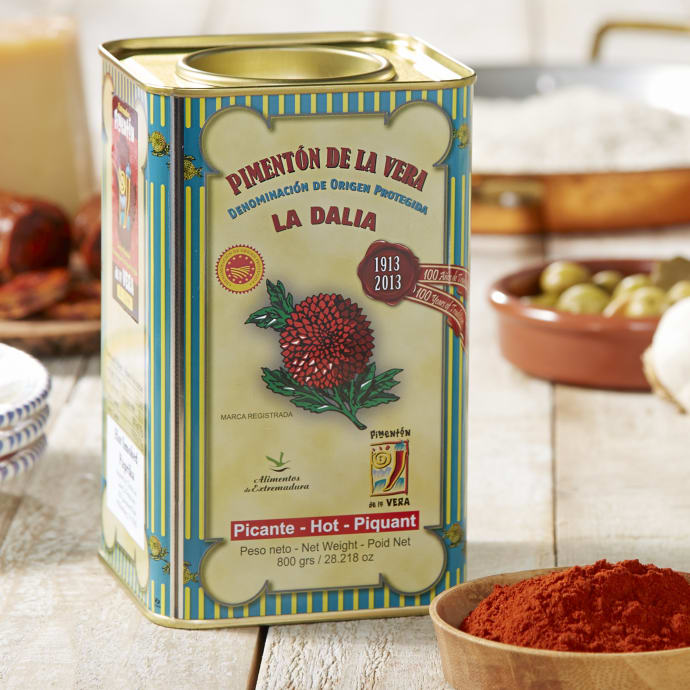Pimentón de la Vera
Adam Baer
Paprika could be the most useless colorful spice in the pantry – that is, the traditional flavorless product we know of as the dried red-pepper powder grandma used on her bland, if ruddy, chicken. But one secret that chefs and better cooks are only still starting to divulge is that there's a power paprika that will change your cooking in unfathomably positive ways: pimentón de la vera, smoked Spanish paprika from Spain's rainy La Vera Tietar River valley, the secret spice that gives Spanish chorizo its inimitable kick.
The deep-red, stone-ground powder comes from peppers Columbus delivered from the New World that have been pulled taut and left to hang over oakwood fires until dry. The powder comes in three versions: dulce (sweet), agridulce (bittersweet with a medium heat level), or picante (hot). The important thing is not to buy "smoked paprika" from Trader Joe's and think you're getting the same thing. You want La Vera pimentón, and you want one of two brands: La Chinata or La Dalia. You can buy it in some brick-and-mortar gourmet stores or for about $7 for a seven-gram tin (sometimes less for multiple packages) from online gourmet stores like Zingermans.com and Tienda.com.
We prefer the La Chinata picante product, perhaps because of the insidious heat that it adds to any food whose flavor we also wish to deepen: broths, paella, Spanish "garlic" bread, any protein (especially lighter seafood). Our favorite home recipe, however, is the simplest: We make a paste out of it with garlic powder, salt, pepper, and good olive oil, and then we roast coated chicken parts as we normally would for what turns into a smoked, moist, and crispy alternative to unhealthful and often bland deep-fried fowl.
For an elevated application, Chef Manuel Trevino of New York's Marble Lane uses pimentón de la vera to create a flavor-packed aioli served along with tempura'd deviled eggs. Pimentón goes a long way, so don't overdo it," he cautions. We've sadly been on the wrong end of that culinary spice equation, so we appreciate the advice, although the highest crime to commit with pimentón is use it so sparingly that it hardly makes an impact. If you're an overspicer, then buy the dulce version and really give that chicken, fish, or shrimp some moderate coverage with our aforementioned paste. The coating should not be so thick that the meat itself is no longer visible, but don't just sprinkle a pinch into the mix – unless you want quixotic dinner party guests to leave with new, grand spice ideas of their own.
Read full article...









